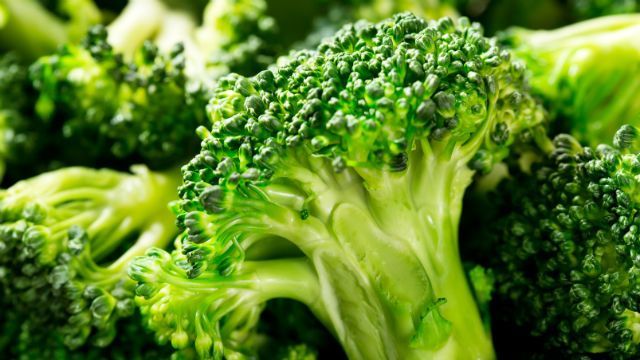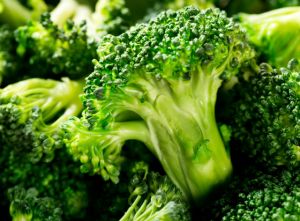
We hear news about various types of bacteria and viruses all the time, yet one major health culprit often gets overlooked: yeast, namely Candida albicans.
When this common fungus becomes overgrown in the body, it can lead to a wide variety of health conditions, though it is seldom recognized as a potential cause.
A small amount of Candida is actually healthy for us. It dwells inside the human body – on our skin and on the mucus membranes of our mouths and intestines, to name a few areas – and aids in nutrient absorption and digestive processes. The healthy bacteria inside the gut keeps yeast levels from rising too high, so if our gut bacteria is in balance, Candida is usually under control.
However, if yeast overpopulates, it can be highly detrimental, as it can break down intestinal walls and enter the bloodstream. Just a few conditions that can be triggered by yeast overgrowth are poor digestive function, headaches, joint pain, anxiety, depression, halitosis (bad breath), fatigue, poor concentration, autoimmune disorders including eczema and psoriasis, numbness and urinary tract infections.
Several lifestyle factors can cause our yeast levels to escalate. One common one is a diet high in sugar and carbohydrates. Eating a lot of processed foods and drinking soda can be especially conducive to yeast. Excessive alcohol intake can also contribute, as can leading a high-stress lifestyle without taking steps to routinely unwind.
Certain medications, namely birth control pills and antibiotics, create a bodily environment which encourages yeast overgrowth. Antibiotics, both in prescription form, and those found in conventionally raised meats, can deplete healthy bacteria in the gut, leaving few to mitigate Candida levels.
The key to keeping the yeast in your body under control is to change your diet. Cutting out processed foods and sugars, and severely limiting or eliminating grains, is the first step.
Choosing grass-fed, organic meats is important, as it keeps you from ingesting unnecessary antibiotics. Incorporating probiotic foods, which include fermented items such as organic yogurt and kefir, sauerkraut and kimchi, can help to keep your gut bacteria in healthy balance.
Once you have made these changes, be sure to dine on a rainbow of fresh, organic fruits and veggies, as well as legumes, healthy proteins and fats. Additionally, the following four foods can supercharge your diet in fighting off Candida overgrowth:
Organic, extra virgin coconut oil
Along with being a highly nutritious, healthy fat source, coconut oil contains potent antifungal properties (along with antibacterial and antiviral properties, for that matter). One fatty acid found in coconut oil, caprylic acid, can actually aid in killing off yeast cells by poking holes in Candida cell walls. Coconut oil also supports the optimal functioning of the immune system. Killing off bad bacteria is just one of the many things that coconut oil can do. Click here to learn more of how this amazing tropical oil can improve your health.
Cruciferous vegetables
Veggies in this family, which include kale, cabbage, broccoli and brussels sprouts, are rich in sulfur and nitrogen compounds, which can help to get yeast under control. Additionally, these vegetables are high in vitamins, minerals, fiber and other antioxidants, to support the immune system, detoxify the body and reduce inflammation to help restore the body to a healthy state.
Seaweed
Seaweed, a star in Japanese culinary arts for hundreds of years, is highly nutritious, supports the body’s ability to detoxify multiple systems, and also helps to cleanse the digestive system of toxic build-up. Furthermore, it is high in iodine, an important nutrient to support thyroid health. As many individuals afflicted with Candida overgrowth also suffer from thyroid issues, seaweed can help to get this under control.
Garlic
Garlic, especially raw garlic, is a highly potent antifungal food. Not only can it help to rid the body of existing yeast, it aids in supporting the regrowth of healthy gut bacteria. Many of the antifungal properties of garlic may be attributed to allicin, a sulphurous compound which gives garlic its detoxifying, disease and yeast-fighting power.
 Giving your diet a makeover now, making time to manage your stress through methods such as meditation and yoga, and only taking antibiotics when you really need them can greatly help to stop Candida overgrowth in its tracks. Your mood, as well as many aspects of your health, will be all the better for it.
Giving your diet a makeover now, making time to manage your stress through methods such as meditation and yoga, and only taking antibiotics when you really need them can greatly help to stop Candida overgrowth in its tracks. Your mood, as well as many aspects of your health, will be all the better for it.
-The Alternative Daily
Sources:
http://www.thealternativedaily.com/candida-take-spit-test
http://www.thealternativedaily.com/is-candida-crippling-your-body
http://www.mindbodygreen.com/0-11005/10-foods-to-fight-candida.html

